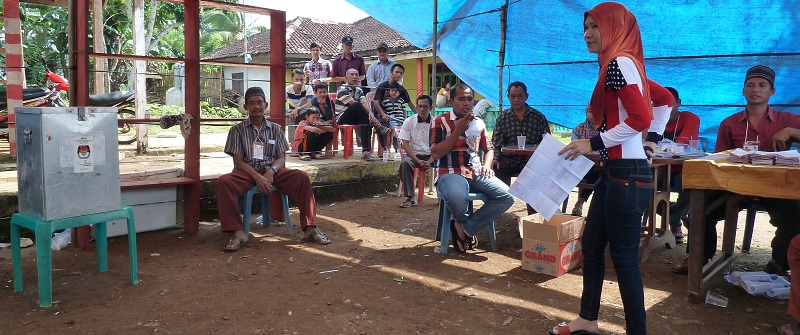
01 Jun Costs of democracy: The political economy of campaign finance
Expensive elections campaigns are a threat to democracies around the world, because they generate corruption and political inequality. Yet, due to methodological obstacles and a western bias in the current literature, we do not really know what makes election campaigns expensive. Employing a new methodology, this project studies the campaign expenditures of a thousand politicians from across India and Indonesia to explain why campaign expenditures vary. In doing so, this project aims to help reduce the role of money in elections to healthier levels.
Expensive elections campaigns are a threat to democracies around the world. The large amounts of money that politicians spend on their campaigns generate corruption and exacerbate political inequality because, as scandals regularly testify, business elites can use their campaign donations to politicians to acquire power and privileges. To curtail the damage that expensive election campaigns are doing to the quality of governance and democracy, a growing number of governments is engaging in campaign finance reform.
However, the costs of election campaigns vary greatly. Not all election campaigns are equally expensive. Yet, due to methodological obstacles and a western bias in the current literature, we do not really know to what extent and why campaign expenditures vary. In the absence of comparative studies of campaign finance, we lack the knowledge to assess what makes elections expensive and, crucially, what might reduce the role of money in elections. Taking up this pressing challenge, this project engages in a within- and between-country comparative study of campaign expenditures in the global south. Penetrating this secretive yet vital dimension of politics in a manner hitherto impossible, this project aims to identify the conditions that boost the role of money in elections: what explains variation in election campaign expenditures.
To answer this question, this project adopts a new methodology that combines up-close candidate shadowing with candidate surveys. Two ethnographic studies on election campaigns in India (SP1) and Indonesia (SP2) – two large democracies in the global south representing different electoral systems – will identify drivers of campaign expenditures, while the candidate surveys will serve to engage in quantitative analysis of within-country variation (SP3). By asking candidates about estimates of the campaign funding and spending of their competitors, such candidate surveys constitute a major methodological advance compared to the current reliance on self-disclosures. This methodological innovation will enable the study of campaign finance to move out of its largely western confines.
To address a western bias in the current literature, this project will implement a new political economy approach to campaign finance that is more attuned to the impact of informal dimensions of politics – clientelism, rent- seeking and business-politics collusion – on campaign spending. In doing so, this project opens the doors to a previously nearly impenetrable dimension of politics, thereby not only generating hitherto unavailable data and analysis of great scientific and societal value but also informing ongoing efforts of NGOs and governments to reduce the role of money in elections to healthier proportions. This research project is a collaboration between KITLV, Ahmedabad University and Universitas Gadjah Mada, with input from the ngo’s Perludem and Alliance for Democratic Reforms.
Project leader
Ward Berenschot
Partners
Universitas Gadja Mada, Ahmadabad University, Perludem and Alliance for Democratic Reforms.




No Comments